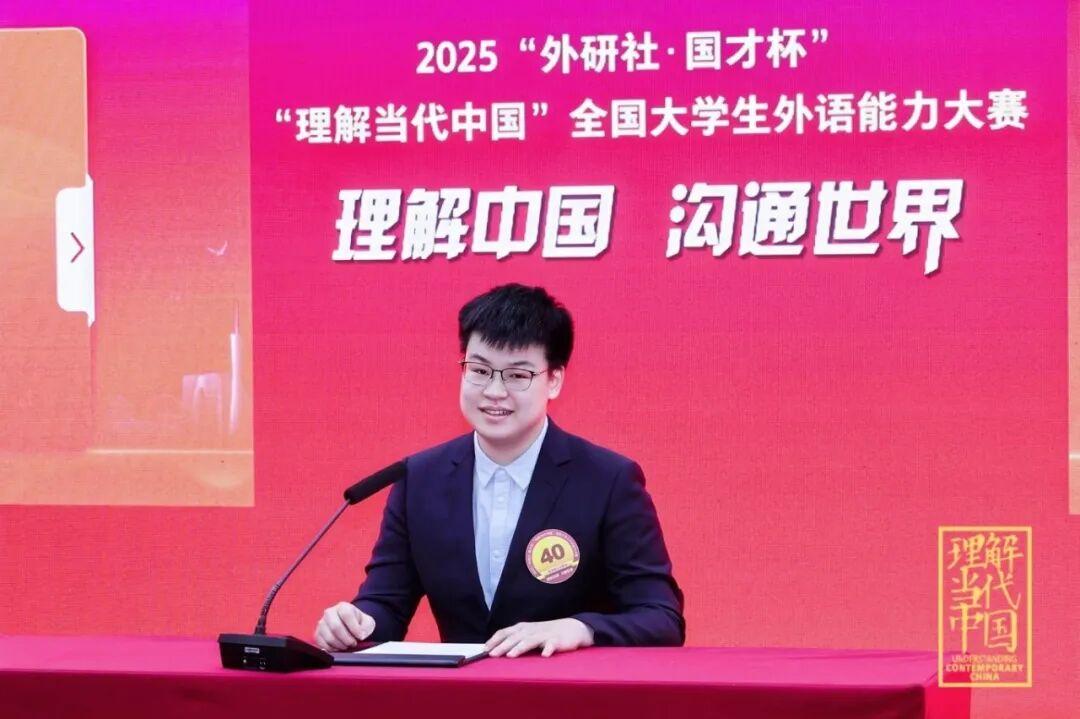Alumni “Meeting” | The only male student in the English Department, at the moment of graduation, he made the only choice of that class ……
Notes of Editor
The direction of Wenzhou-Kean University is to “find different directions for different students.” Since the opening of the Alumni section, we have introduced the researcher who successfully applied for a degree in the U.S. in two months, as well as the innovator who started his own business in America and is now feeding his hometown. The alumnus we introduce today chose a completely different path after graduation. On this road, he has been practicing his ideas with the vigor of a young man and has come out of his life trajectory.
As the saying goes, there is no road taken for nothing in life, and every step counts. It leads you to step by step, making who you are today.
Self-report Ye Weili Record Zhuang Jia
My name is Ye Weili. I graduated from the English Department of WKU (Wenzhou-Kean University) in 2017 and am currently a “Teach For China” teacher in rural areas.
Today, I want to tell you my story.
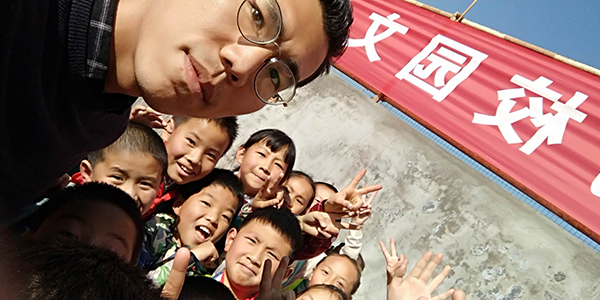
“The Only” Boy
In 2017, I graduated from WKU as an English-major student.
Even though I was the only male student in English major, I did not feel anxious about the undetermined future. At the fork road of choosing to apply for graduate schools and finding a job, I chose to sign a contract with the “Teach For China” and became a rural teacher.
Many people were surprised at my choice: how I could find another way out of my already-planned life. Indeed, even if the volunteer teaching could be noticed by someone, it would be overshadowed by other plans and opportunities after a few seconds.
The trail seems to be grassy and quiet, but for me, it is inviting and beautiful.
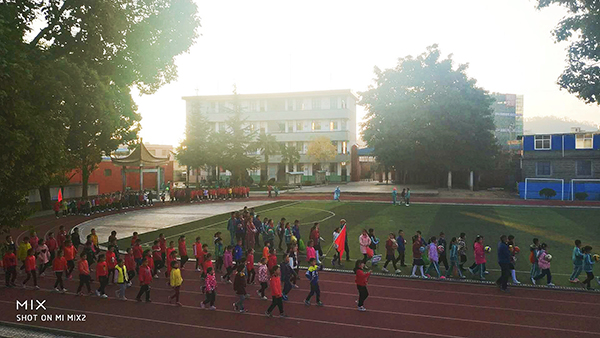
When I was a freshman, a similar idea germinated in my mind. In my sophomore year, I learned about “Teach For China.” It is a non-profit educational program under the Lead Foundation in Beijing, which aims to provide continuous and stable faculty resources for areas with scarce educational resources. While learning about the program, I gradually learned about many people and events related to teaching and was deeply touched.
I finally made this decision in the first semester of my senior year. At that time, I felt that some new educational concepts would not work in the countryside. The development of education today, like the development of many other things, is considered a complete separation between urban and rural areas. Children in the countryside have no opportunity to enjoy the benefits of urban development. The countryside, rural education, must have its development model with great potential. These ideas, which lacked practical support, and the intense collision between my heart and the outside world, pushed me to come to the countryside to teach.
So, I took my first step on this untrodden path.
“Country” youth
The school I taught at was Jinbi Primary School in Dayao County, Chuxiong Yi Autonomous Prefecture, Yunnan Province. In the blink of an eye, I have spent two busy and fulfilling years here.
The school locates in Jinbi Town, the heart of Dayao County, which is relatively prosperous than the mountainous area. However, it still takes a five-hour flight and a four-hour-plus drive from Wenzhou to Dayao.
Fortunately, Dayao County has a wide variety of shops and other public facilities. Contrary to what people may think, even in the most remote mountainous areas of Dayao County, the most basic facilities are still available. The school environment is much better than I expected. Though the facilities are not comparable to elementary schools in big cities, they have everything they need. The teachers at the school are not the stereotypical teachers who are not adaptable and cannot keep up with the times. Instead, they are pretty responsible and experienced in teaching. However, the school still has a shortage of classrooms, but the situation is gradually improving as construction intensifies.
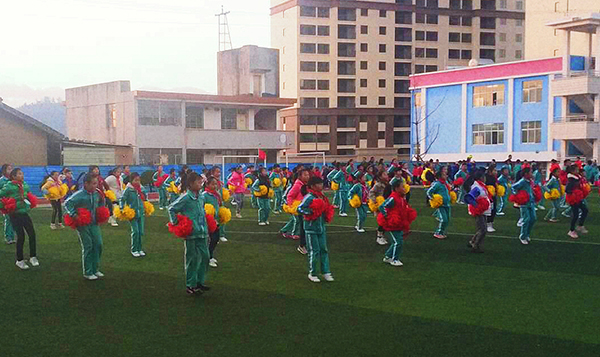
Before stepping on this unfamiliar land, I have accustomed to the gentle hilly terrain and flowing clouds in southern China. Because of the highland environment with an average altitude of 1,100 meters and thin air, the sun seemed reckless. I did not realize it until I got tanned so much.
Besides, I was living in a building that combines dormitory and office at the school. After several days, I adapted to the daily routine of water and electricity cuts in Dayao County. However, although there are many cuisines in Yunnan, Guizhou, and Sichuan, the style of heavy oil and spicy food is not my thing. I had to feed myself most of the time. The good thing is that there are still restaurants opening outside the school. Occasionally, it can also be regarded as a happy spice in addition to my own “dark cuisine.”
Young “lecturer”
In school, I dealt with students from first to sixth grade. Teaching 20 hours a week was still a bit much for me in the main subjects I teach, English and Physical Education. Besides, I was responsible for supervising the students’ morning exercises. It is common to see me alternating between lesson planning and teaching. How I wished I could split up into two people to work.
When I suddenly turned from a student to a teacher, from a listener to a lecturer, it is natural to encounter difficulties. First, there are too many students in one class. Each class in the school has about 55 to 60 students, and the largest class has 62 students. It was hard to engage every single student in the class. Secondly, some students did not grasp fundamental knowledge well. Also, some parents are either indifferent or incompetent to their children’s education.
I was not expecting to teach elementary school students at first, especially first and second graders. So, in the beginning, I was unable to communicate with them, especially in the first grade PE class. However, after listening to other teachers’ classes, learning some theories, and recalling my thinking patterns as a child, I gradually mastered a set of skills to communicate with elementary school students. The most important thing is to make something as simple as possible and break down what is obvious to adults and tell them little by little.
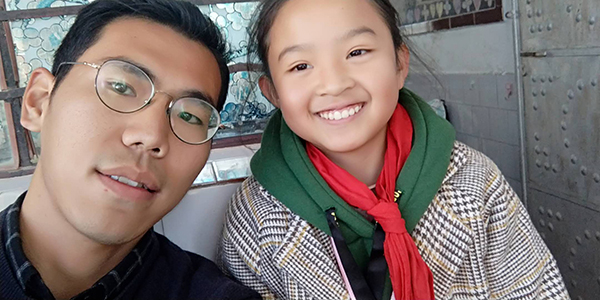
The two years of teaching taught me a lot. Without coming to Yunnan, there are many things that I would never have seen or known in my life.
In life, I have learned to take care of myself, solve problems and overcome difficulties independently. In teaching, many theories I learned from books can be confirmed. My teaching skills have greatly improved in practical operation, and my values about education have constantly been changing.
Last school year, I taught a second-grade class in English. There was a boy who would make me quite angry in every class. He was the type that does not listen. Sometimes I could not even see any future or hope in him. I am not teaching their English class this year, but I have him in my new basketball class. At first, once I thought of him, I frowned, and I even thought of changing students. However, after class, to my surprise, the boy followed the directions well and did not slack off even when doing boring drills. I believe this boy has grown up. Students need a little time to “get their Epiphany.” Some students are very mature in third grade and understand what they should do quickly, while some are still in a state of confusion in fifth grade and are slow to understand things. This boy was in a state of not knowing anything in second grade, so he did not listen to me no matter how I educated him. However, by third grade, he suddenly grew up.
What we should do as teachers is not to rush and give up hope. Instead, we should treat students fairly. Praise them when they perform well, criticize them when they make mistakes, and then wait patiently for them to “get the hang of it.” Even in our minds, we should not casually “sentence them to death.”
“Pure” youth
As for the future, I will probably choose to return to my hometown, Wenzhou. I will take the teaching certificate and continue on the road to education.
I have always regarded myself as an ordinary local village teacher but not a “volunteer teacher.” In my opinion, only when I don’t think of myself as a volunteer teacher, can I genuinely integrate into the local community and the school.
It takes ten years to grow a tree, but a hundred years to grow a man.
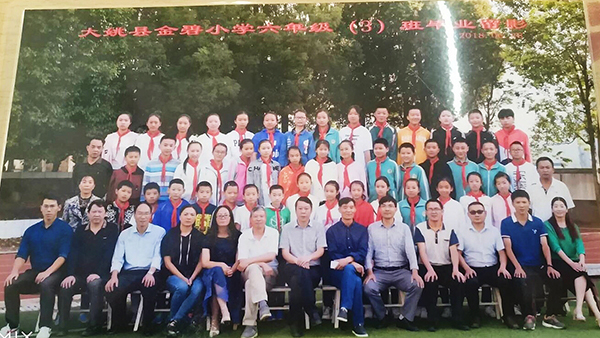
What did volunteer teaching bring me?
The most significant benefit is to have a long period of pure work experience in which there is no competition between the local teachers and me. What I need to do is pure and simple – to teach well. I hope that this mentality can become a habit. Even if I teach in a regular school in the future, I hope to keep this purity in teaching.
Secondly, even though I have been trying to tear down the label of volunteer teacher as much as possible, I still cannot help but use this identity to observe things around me. In this school, I am a teacher of the school, but at the same time, I am an outsider, so I can observe the management and operation of the school from different perspectives to form my evaluation. Volunteer teacher, from this aspect, has a unique identity. I hope to maintain the awareness of observing things from multiple perspectives and viewing issues from multiple identities.
Every time I talk about my job, people will think I struggle hard in the savage areas. The reality is not like that. At least in Jinbi town where I live, there is a supermarket, a second-class hospital, a beautiful artificial lake, a cinema, and a high school with a high rate of first-level-university enrollment. The living conditions are indeed difficult in the mountainous countryside, but I would like to say that the township constructions are not wrong. They have everything they need. What they lack are talents. The townships must have great potential for development, and I hope more people will realize it eventually.
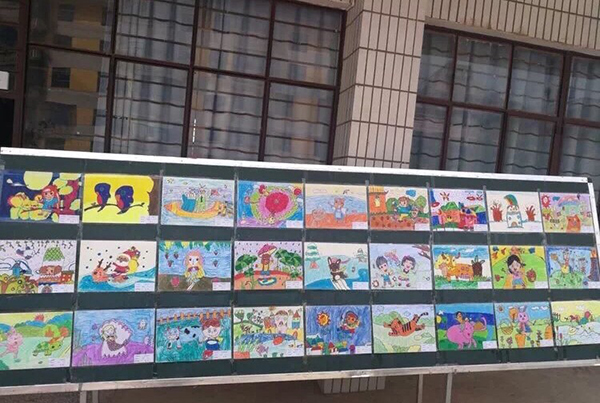
My name is Ye Weili, the only male student in the WKU English Department in the Class of 2017, and the only volunteer teacher of this class.
Author: Zhuang Jia
Word Editing: Wang Shu
Translation: Zhang Wenxuan
Photos: Ye Weili
Editing: Huang Huichao/ Xiang Bingling
- Wenzhou-Kean University Spearheading Sustainability in Higher Education in Asia and in China, Awarded the AASHE STARS Gold-Certified in Sustainability
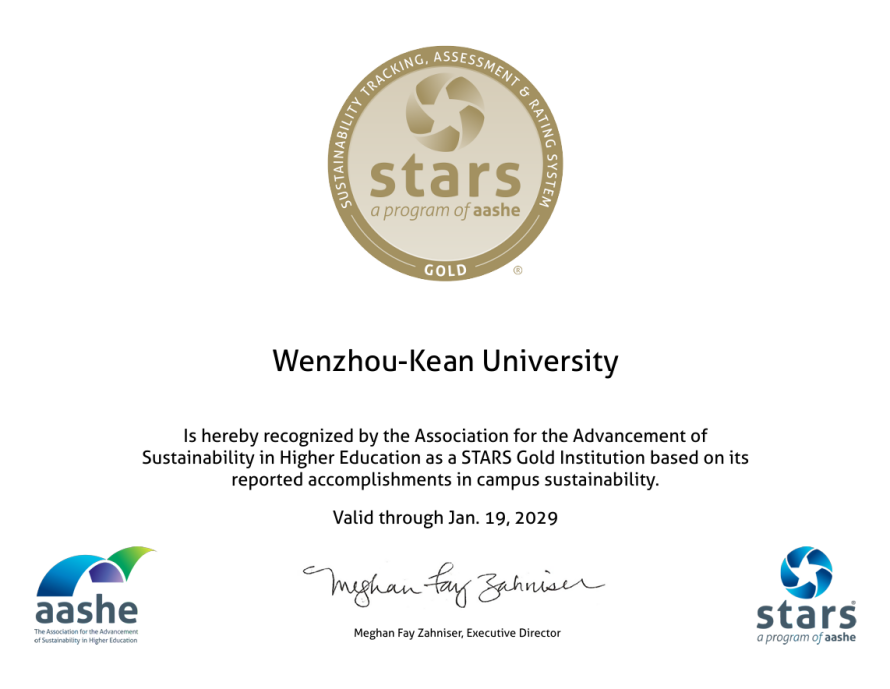
- Media Report | Wenzhou Daily: A Window into Friendship Between Chinese and U.S. Youths Wenzhou-Kean University Welcomes 340 Young Americans in Two Years
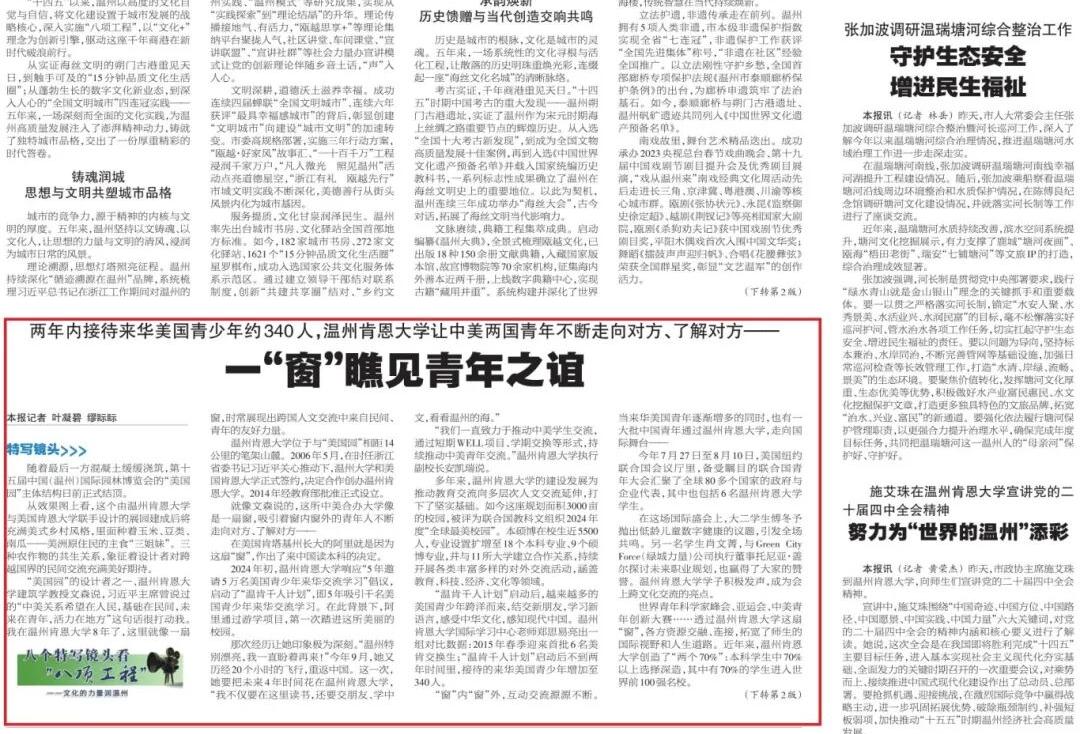
- WKU Student wins first prize in a national English speech contest: What is his answer to the value of boredom?
